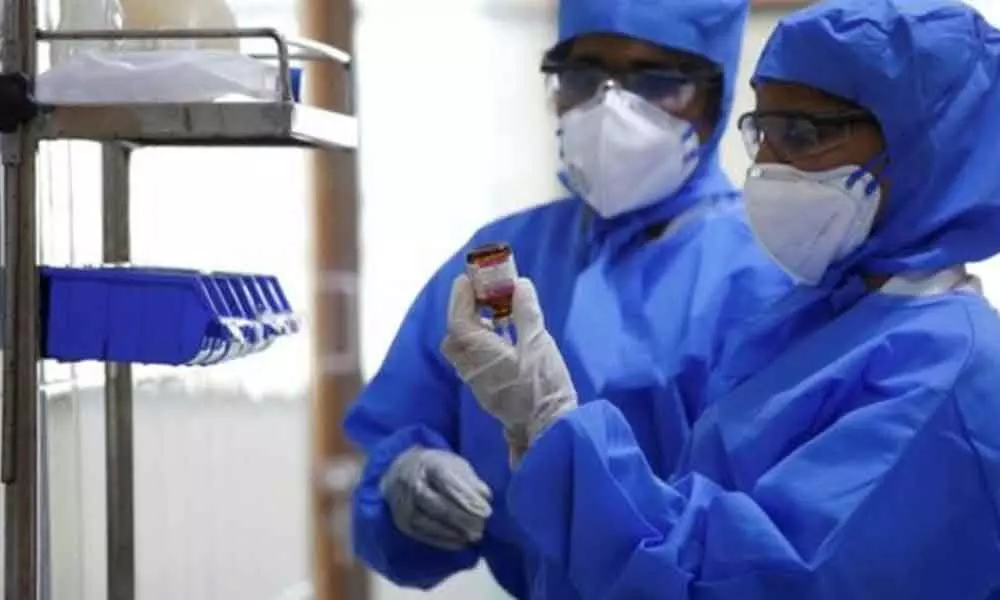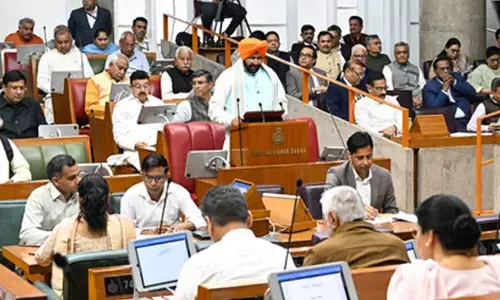Centre revises discharge policy

Representational Image
In light of the peaking COVID-19 third wave in India, the Central government said Wednesday that the Union Health Ministry has amended hospital discharge policies based on case severity in response to the Omicron-drive rise in infections.
New Delhi: In light of the peaking COVID-19 third wave in India, the Central government said Wednesday that the Union Health Ministry has amended hospital discharge policies based on case severity in response to the Omicron-drive rise in infections. During the weekly Covid-19 briefing in New Delhi, Lav Agarwal, Joint Secretary at the Health Ministry, stated that following a review meeting with the Prime Minister on the COVID issue, they have changed our discharge policy with severity categorised into mild and moderate cases.
Omicron is not common cold, it's our responsibility to slow it down. Let's mask-up and get vaccinated, whoever is due. It's fact they (vaccines) are helpful to an extent. Vaccination critical pillar of our Covid response," Niti Aayog Member (Health) Dr VK Paul sais
According to the new policy, a 'mild case discharge' occurs after at least seven days of testing positive and non-emergency for three consecutive days, with no requirement for testing before discharge. A 'moderate case discharge' occurs when symptoms have resolved, and the patient's O2 saturation remains over 93 per cent for three consecutive days (without O2). Such patients are eligible for discharge.
Mild cases
1) Discharge after at least 7 days from testing positive and no fever for 3 successive days.
2) No need for testing prior to discharge.
Moderate case
1) If there is resolution of symptoms, patient maintains 02 saturation > 93% for 3 successive days without oxygen support) and stable comorbidities, if any, such patient will be discharged as per the advice of the treating medical officer.
2) No need testing prior to discharge
3) Patients on oxygen whose symptoms do not resolve and demand for oxygen continues, to be discharged only after
* Resolution of Symptoms
* O2 saturation above the prescribed limit for 3 successive days (without oxygen support)
* Stable comorbidities
According to Agarwal, Omicron has a large growth advantage over Delta, and statistics from South Africa, the United Kingdom, Canada, and Denmark suggest that Omicron has a reduced risk of hospitalisation than Delta.
The occurrence of the Omicron variation has already been documented in 28 Indian states. There are now 3,062 active cases of the hazardous coronavirus type among 4,868 illnesses. While 1,805 individuals have recovered, one Omicron-infected person has died due to the virus.








